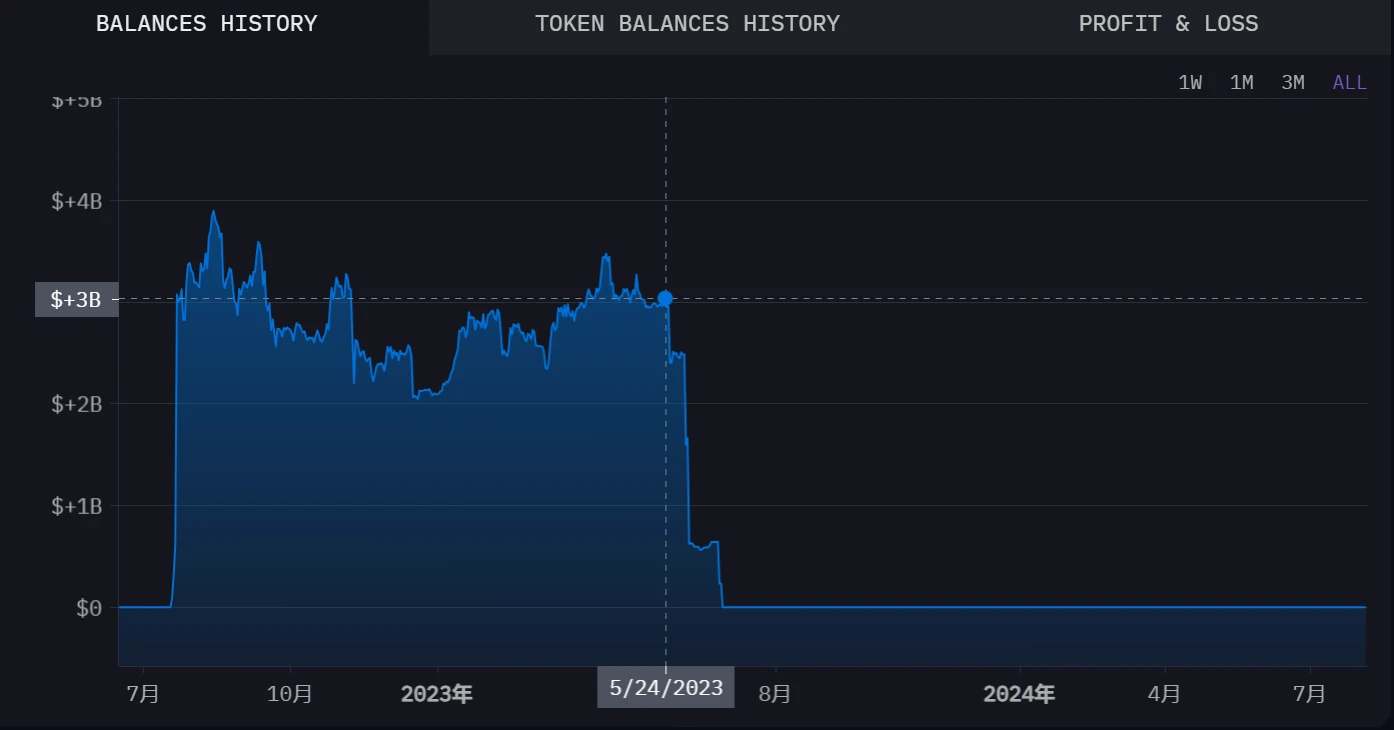Jump vendió más de $100 millones de ETH en una semana, analizando los detalles de la cantidad y la posible presión de venta
Original | Odaily Planeta Diario ( @OdailyChina )
Autor|Nan Zhi ( @Asesino_Malvo )

Today, the crypto market fell into a panic spiral with the expectation of a global economic recession. BTC fell from over $600 million to below $500 million in two days, and ETH fell from over $3,000 to a minimum of around $2,100. Despite the many negative macro news, the main cause of todays plunge is believed to be the massive sell-off by the well-known crypto agency Jump Trading.
Within a week, Jump Trading rapidly sold off hundreds of millions of dollars worth of ETH. Combined with its previous investigation by the U.S. Commodity Futures Trading Commission (CFTC), the already panic-stricken crypto market is rumored that its crypto-related business may be shut down.
So how many tokens did Jump Trading sell, and how many of them are still held? Odaily will analyze this in this article.
Jump Sell-off Details
The first abnormal movement of Jump Trading related addresses occurred on July 26, when a certain address transferred 7,000 ETH to Jump Trading , worth about 22.6 million U.S. dollars. At that time, ETH had just experienced a sharp drop from 3,500 USDT to 3,100 USDT.
Two days later, Jump Trading began its first sell-off , and the relevant address deposited 4,737 ETH into Binance, worth approximately US$15.4 million.
In the following days, Jump Trading conducted a series of fund collection operations, including unstaked ETH from Lido , transferred ETH from other wallets multiple times, and then deposited the ETH into the exchange.
The largest portion of Jump Trading’s ETH tokens are in the form of 120,000 wstETH, which Jump Trading has been redeeming since July 25.
As of the time of writing, Jump Trading still has approximately 37,000 wstETH , worth $100 million, in addition to $8 million in RETH, all of which have been transferred or sold.
(Odaily Note: wstETH holding address is 0x48d62ED012E327FaaCb9c8d2A56330E215DA0575)

Remaining positions
This morning, multiple on-chain analysis teams reported that 96% of Jump Trading’s holdings are stablecoins, which are not actually included in the address holding $100 million in wstETH mentioned above.
The current holdings of the Arkham-marked Jump Trading address are worth $590 million, of which $569 million are stablecoins , so the apparent selling pressure is more than $100 million in ETH.

However, as the industry leader, Jump Trading’s theoretical holdings should be far more than $600 million. An investigation by Odaily found that an old address of Jump Trading held 1.64 million ETH at its peak, which was worth up to $3.77 billion at a price of 2,300 USDT.
However, since Jump Trading transferred more than one million ETH to Robinhood in May and June 2023, it is currently impossible to track whether they were sold or transferred, and the potential magnitude of the selling pressure cannot be estimated, but it is worth paying attention to.
(Odaily Note: Jump’s old address is 0x0716a17FBAeE714f1E6aB0f9d59edbC5f09815C0)

Jump to exit crypto?
Why did Jump start selling ETH so quickly? There is no public conclusion yet, but the market speculates that this move is related to the previous CFTC investigation. On June 20, according to a market news, the U.S. Commodity Futures Trading Commission (CFTC) is investigating Jump Crypto , but it is not clear whether the CFTC is considering filing any charges against the company. Four days later, Jump Crypto President Kanav Kariya announced his resignation on the X platform .
(Odaily Note: Jump Crypto is the crypto division of Jump Trading, established in September 2021.)
During Jumps ETH sell-off, Justin dAnethan, head of business development for Asia Pacific at cryptocurrency market maker Keyrock, said : There are rumors that they (Jump Trading) may be forced to exit the crypto business due to the CFTC investigation.
After the sharp drop this morning, BitMEX co-founder Arthur Hayes posted on X that he learned through traditional financial sources that a big shot had been disposed of and sold all his crypto assets. He added that he was not sure whether the news was true, but would not disclose the specific name. Based on various signs, the community speculated that he was referring to Jump Crypto.
Jump Lead Investment Project
If Jump Trading is forced to withdraw from the crypto space for some reason, the projects led by Jump Crypto may also be affected. We have compiled the projects led by Jump Crypto and issued tokens in the past two years as follows, listing the project name, token name, investment round, and the current circulating market value of the token. The earlier the round, the more token shares held:
ZTX-ZTX-Seed Round-US$18.5 million;
Puerto3 – PUERTO3 – Seed Round – $4.89 million;
Celestia-TIA-Series A-US$855 million;
Sui-SUI-B Series – $1.29 billion;
Injective-INJ-Post-IPO Funding-$1.4 billion;
Aptos-APT-Series A-US$214 million;
AltLayer – ALT – Seed Round – $164 million;
Push Protocol-PUSH-A round-3.72 million US dollars;
Thetanuts Finance-NUTS-Seed Round-US$5 million;
This article is sourced from the internet: Jump sold over $100 million of ETH in a week, analyzing the details of the amount and potential selling pressure
Related: Market liquidity is fragmented, how much does it cost to trade Bitcoin?
Original author: Crypto Research Original translation: Luffy, Foresight News How much does it cost to trade Bitcoin and other crypto assets? This question sounds simple, but it is not. The vast majority of current markets ignore other participants and often trade at prices higher or lower than other markets show. There are several reasons for this phenomenon: Lack of data: There is no “official” combined best bid and ask (BBO) price for cryptocurrencies. Market fragmentation: There are many cryptocurrency trading markets, including centralized exchanges (CEX), liquidity providers (LP), and decentralized exchanges (DEX), and price oracles conflict with each other. Opportunism: Many market makers ignore their responsibilities to clients to provide “best execution” and instead extract profits and reduce costs from payment for order flow (PFOF). The chart below shows the…







